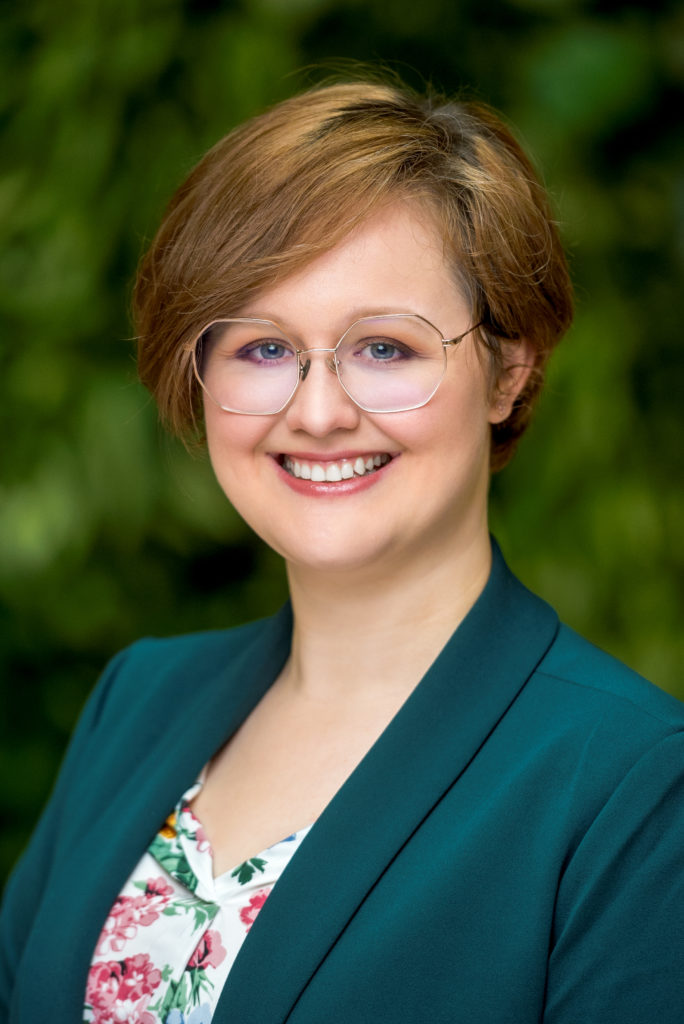‘In the doctoral programme, you are more than just a student’ – the PhD story of Alexandra Bagi

Alexandra Bagi is a second-year student of the Doctoral School of Sociology and Communication Science at the Corvinus University of Budapest In her research, she would like to find out more about international student mobility from the aspect of sociology.
Alexandra Bagi’s doctoral research is inspired by a lot of personal experiences. After obtaining a Bachelor, and then a Master Degree in Communication, she travelled to Vietnam with the Erasmus+ programme. For half a year, she was teaching children in English, as a volunteer. ‘Teaching and Asian culture inspired me a lot, therefore, after Vietnam, I went to Chine for a year, and continued teaching there’, says Alexandra. When she decided in 2019 to come home, she enrolled for the Cultural Anthropology Master Programme of the ELTE University. She lived in a dormitory, where a lot of foreign students were staying, so she made a lot of foreign friends.
‘When I was looking for a topic for my thesis, I started to investigate what direction I should take. My personal experiences made me realise that student mobility might be an interesting research area. The first question that occurred to me was why so many foreign students came to study in Hungary.’
As Alexandra started to talk more about this with her foreign friends, she experienced that they were enthusiastic about the idea, and were open to answer her questions. Finally, she wrote her thesis about the experiences of Pakistani students studying in Hungary, and applied for admission to the doctoral programme with a similar topic.
She was admitted to two places, but she selected the Corvinus. ‘I was curious to see this university, as I had never studied here before’, she said smiling. In the Doctoral Programme of Sociology, she does not feel that it would be a disadvantage that previously she studied something else. ‘In my opinion, various fields of social sciences are closely related to each other. I feel that my qualifications are interconnected with the doctoral programme and my research.’
Since the start of the programme, it has been her research topic and her passion for teaching that motivated her. ‘I love to see it when students understand something, and we develop together’, she says. She teaches outside the university, too, she teaches Hungarian to foreign students. ‘I have the feeling that when I finish the doctoral programme, I would like to proceed with an enterprising approach, and start my own business. The doctoral programme may provide a very good basis for that, because we learn independence during the programme.’
Alexandra says it means a huge responsibility, too, which may cause some difficulties as well. In moments full of challenges, she relies on the perception that she is doing the programme for herself. She thinks that if you start the doctoral programme with strong enough internal motivation, it is much easier to hold on. The relationship established with her supervisor is also important to her. ‘Open communication with your supervisor is of key importance. You have to learn how to ask questions and ask for help.’ Alexandra considers these situations, just like the whole doctoral programme, as an opportunity to develop. ‘When you apply for a programme, you think you will be a student only. In the doctoral programme you are much more than a student’.
This is obvious from the fact that the class of four has developed a lot in the past two years. In Alexandra’s opinion, researches have progressed a lot, independently of their topics. Her topic has also changed since the start of the programme. Presently she is investigating the situation of university students coming from East Asia. Her primary interest is this question: when students come to study in Hungary, with whom will they get in touch, how will they do networking, and what impacts will influence their decisions.
The research starts from Pierre Bourdieu’s capital concept, and is based on the assumption that if you have more experience in mobility, migration and travelling, you are more likely to go anywhere in the world. ‘For example, I assume that if you travelled a lot in your childhood, you are more likely to go abroad to study’ explains Alexandra. Another interesting question is why young people from East Asia select Hungarian universities, and how much they think it is a stepping-stone for them, and how much and where they wish to proceed.
Alexandra will soon present her research at one of the largest international conferences on migration, at the annual event of IMISCOE (International Migration Research Network), while continuing to digging deeper into the subject. ‘When I read about the topic, I often find the missing links in the works of other researchers, and this makes my thoughts interrelated. In the course of research, one of the best feelings to me is to learn the thoughts of people who are much smarter than me’, says Alexandra about her every-day life.